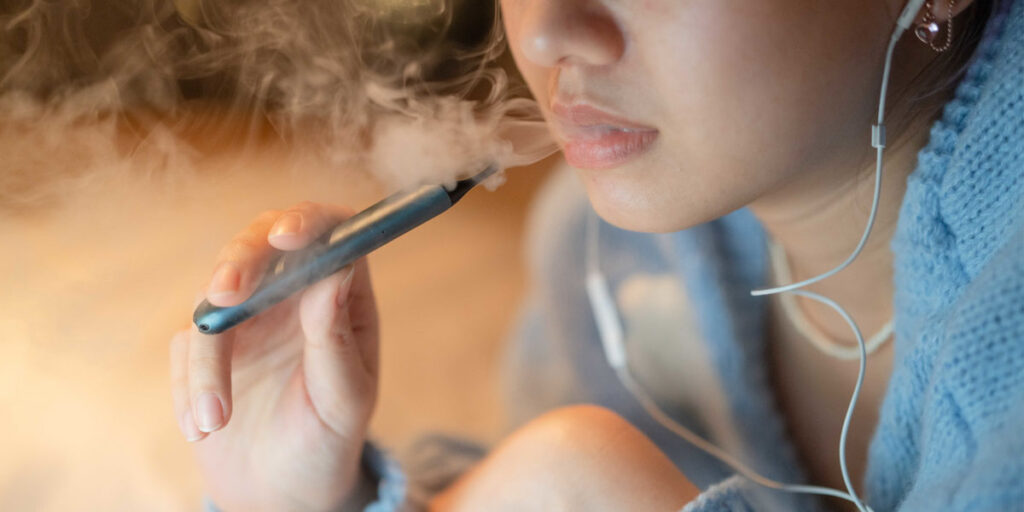The escalating issue of marijuana use among teenagers and its profound link to the onset of severe mental health disorders, notably psychosis, is an urgent public health concern. This article provides an in-depth examination of the detrimental effects of cannabis on adolescent mental health, focusing on the significantly increased potency of the drug and its correlation with higher rates of psychosis, especially in young users.
In the past few decades, the nature of marijuana has dramatically transformed. The cannabis of today is markedly more potent than the varieties common 20 or 30 years ago. This evolution in potency is a critical factor contributing to the increase in psychotic episodes among youth. Dr. Deepali Gershan, an addiction psychiatrist, remarks, “This isn’t the cannabis of 20, 30 years ago,” reflecting on the changing nature of the drug and its impact on users. Similarly, healthcare-analytics company Truveta highlighted a startling increase in diagnoses for cannabis-induced disorders, which were over 50% higher at the end of November than in 2019.
The journey of Braxton Clark, a young individual who turned to marijuana in high school, exemplifies the perilous potential of cannabis. Clark’s daily use of marijuana at the age of 17 led to a debilitating psychotic episode at 18, marking the beginning of a strenuous path towards recovery. His experience mirrors that of many other teenagers and young adults who have succumbed to delusions and paranoia following cannabis use. “I had lost my faculties. I wasn’t making sense,” Clark reflects on the impact cannabis had on his mental health.
Compelling research underscores a disturbing correlation between cannabis use and the development of psychosis. A pivotal study in the American Journal of Psychiatry in 2017 revealed that even a single psychotic episode following cannabis use was associated with a 47% chance of a person developing schizophrenia or bipolar disorder. This risk is particularly acute for individuals aged 16 to 25, and it is greater than the risk associated with substances such as amphetamines, hallucinogens, opioids, and alcohol.
Johns Hopkins Study: THC’s Impact on the Adolescent Brain
A study conducted by Johns Hopkins Medicine researchers discovered that high levels of THC in adolescent mice caused changes to the structure of microglia, brain immune cells, potentially exacerbating genetic predispositions to schizophrenia. The study, published in Nature Communications, adds to the burgeoning evidence about THC’s risk to brain development in adolescents. “Recreational and medical marijuana use is rapidly expanding in the United States and abroad, and teens are especially vulnerable to long-term negative effects of THC,” says Atsushi Kamiya, a professor at the Johns Hopkins University School of Medicine, emphasizing the dangers posed by the increasing potency of marijuana.
The Profound Risks of Recreational Cannabis Use in Teenagers
The use of recreational marijuana in teenagers is linked to a significantly increased likelihood of developing psychiatric disorders such as depression and suicidality. Teens who use cannabis are two to four times more likely to develop these mental health issues than those who do not use the drug at all. This increased risk is partly due to the ongoing development of the brain, which does not fully mature until around the age of 25. Bonnie Halpern-Felsher, a developmental psychologist at Stanford, highlights the criticality of this developmental stage, noting, “We definitely know that if you are an older adolescent or young adult, and you have a genetic or familial predisposition for psychosis and you use cannabis, it seems to be the trigger to actually having you have that mental health issue.”
The growing potency and accessibility of cannabis, coupled with widespread misconceptions about its safety, are taking a significant toll on society. The personal tragedies of individuals like Randy Bacchus and Braxton Clark illustrate the devastating impact of cannabis use. Meanwhile, healthcare professionals are increasingly concerned about the broader societal effects, as emergency rooms and psychiatric wards see a rising number of young people suffering from cannabis-induced disorders.
Society in recent years has relaxed its views on marijuana, with many states decriminalizing or outright legalizing its use. While it is still illegal at the federal level, the laws are no longer enforced with any vigor. This has been one of those issues where once the door is opened it can never be closed – marijuana will never be banned outright again. And our children will suffer for it.
Our philosophy is that if you are an adult and can take responsibility for you life, go ahead and destroy it with marijuana, alcohol or other substances if you like, as long as society doesn’t have to pay for it. But the flipside is that minor children who are not mature enough to be responsible for their adult life should not have access to dangerous and addictive substances.
And anyone who pushes addictive substances onto a minor children and causes them to be addicted (a condition that can ruin the rest of their life) should be subject to the death penalty.
https://www.wsj.com/us-news/marijuana-depression-psychosis-869490d1
